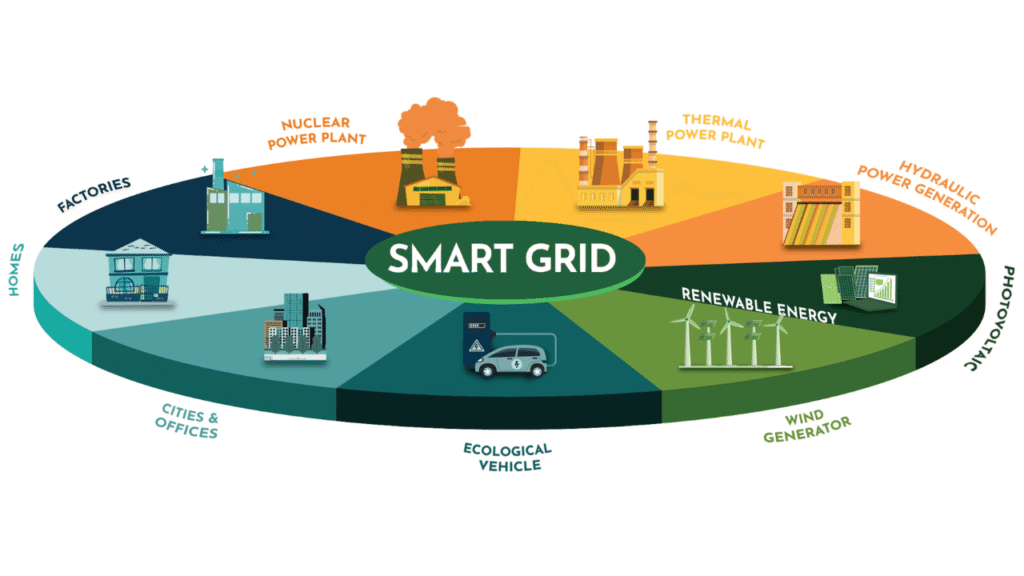The global imperative to combat climate change and transition to a low-carbon economy has created an unprecedented demand for skilled professionals in the renewable energy sector. As the world increasingly embraces green technologies—from vast solar energy farms to advanced grid solutions for smart cities—the need for engineers who can design, implement, and optimize these systems is exploding. For aspiring students, pursuing renewable energy careers begins with choosing the right engineering major, a crucial step in charting a successful path in this dynamic and impactful field.
Understanding the Landscape: Green Tech Innovations
The renewable energy landscape is characterized by constant green tech innovations. It encompasses a wide array of technologies designed to harness clean energy sources and improve efficiency. This includes:

- Solar Energy: The conversion of sunlight into electricity using photovoltaic (PV) panels or into heat for thermal applications. Advances in US solar technology, such as more efficient perovskite solar cells and integrated battery storage systems, are making solar energy increasingly competitive. Companies like NextEra Energy tech are major players in the US solar technology market, investing heavily in large-scale solar energy projects and associated infrastructure.
- Wind Power: Utilizing wind turbines to convert wind into electricity. This often involves large-scale wind farms, both onshore and offshore.
- Geothermal Energy: Tapping into the Earth's internal heat to generate electricity or provide direct heating/cooling. Investment in geothermal tech is growing, with engineers working to make this baseload green energy source more accessible globally.
- Hydropower: Generating electricity from the movement of water.
- Bioenergy: Producing energy from organic matter.
- Energy Storage: Crucial for intermittent renewables like solar energy and wind, storage solutions (batteries, pumped hydro, hydrogen) ensure a stable supply of green energy.
- Smart Grids: Integrating digital communication technology to monitor and manage energy delivery in real-time, optimizing the flow of green energy and incorporating distributed generation. This is vital for integrating diverse green energy sources into the existing infrastructure.

- Sustainable Transportation: Including electric vehicles (EVs) and charging infrastructure, often powered by green energy.
- Green Buildings: Designing structures that minimize energy consumption and environmental impact, often leveraging green energy sources and efficient systems. These are key components of smart cities.
Each of these areas requires specific engineering expertise, making certain majors particularly well-suited for a career in green tech.

Best Engineering Majors for Renewable Energy Careers
While many engineering disciplines can contribute to the renewable energy sector, some stand out as particularly impactful:
1. Electrical Engineering
This is arguably one of the best engineering majors for green tech, especially for those interested in solar energy and grid integration. Electrical engineers are critical for designing and optimizing photovoltaic systems, power electronics (inverters and converters), grid connections, and smart grid technology. They work on power transmission and distribution, ensuring that green energy reaches homes and businesses efficiently and reliably. They are also essential for developing and integrating advanced battery storage systems and electric vehicle charging infrastructure.

2. Mechanical Engineering
Mechanical engineers are fundamental to the design, analysis, and manufacturing of most green energy systems. They develop and optimize wind turbines (blades, gearboxes, structures), solar energy concentrators, geothermal drilling equipment, and efficient HVAC systems for green buildings. Their expertise in fluid dynamics, thermodynamics, and materials science is invaluable for improving the efficiency and durability of renewable energy components. They are also crucial for green tech innovations in thermal energy storage.
3. Chemical Engineering
For those fascinated by the fundamental processes of energy conversion and materials, chemical engineering offers unique opportunities. Chemical engineers are vital in developing advanced battery chemistries, fuel cells (especially for hydrogen green energy), biofuels, and carbon capture technologies. Their understanding of chemical reactions and material properties is crucial for creating more efficient and sustainable energy storage and conversion solutions, vital for a low-carbon economy.
4. Environmental Engineering
This major directly addresses the environmental impact of energy production and consumption. Environmental engineers work on designing systems to minimize pollution, manage waste from green energy infrastructure, and ensure sustainable practices in resource extraction for renewable technology components. They also play a key role in site assessment for renewable energy projects and ensuring compliance with environmental regulations. Their work is essential for the “green” aspect of green tech innovations.

5. Renewable Energy Engineering (Specialized Programs)
A growing number of universities now offer dedicated Renewable Energy Engineering degrees. These interdisciplinary programs often combine elements of electrical, mechanical, and environmental engineering, providing a focused education on various green energy technologies. This specialization can be particularly beneficial for students who are certain about their career path within the sector.
6. Civil Engineering
While less direct than the others, civil engineers are essential for the infrastructure of green energy. They design and oversee the construction of wind farms, solar energy plants, hydroelectric dams, and the foundations for transmission lines. Their expertise in structural integrity, site development, and infrastructure planning is critical for large-scale renewable energy projects and the development of smart cities.

Powering the Future of Renewable Energy Careers: Roles and Opportunities
Graduates from these best engineering majors for green tech can find diverse roles across the entire renewable energy value chain. Companies like Nextera Energy tech, a major US solar technology and renewable energy developer, actively recruit engineers for roles in project development, design, operations, and maintenance.
For example, a solar energy explained by an electrical engineer might involve designing the optimal layout of a large PV farm, selecting the right inverters, and integrating the system into the local grid. A mechanical engineer might focus on improving the aerodynamic efficiency of wind turbine blades or designing heat exchange systems for geothermal tech. A chemical engineer might work on developing next-generation solid-state batteries for energy storage or optimizing the production of hydrogen as a clean fuel.

The drive towards smart cities also creates unique opportunities. Engineers are needed to design integrated systems for urban green energy production (rooftop solar energy, small wind), efficient building management, and sustainable transportation networks. The development of smart cities is inherently reliant on cutting-edge green tech innovations.
The global transition to a low-carbon economy is not just an environmental necessity; it's an economic opportunity. The demand for engineers skilled in green tech will only continue to grow, making these majors excellent choices for a future-proof career. By choosing one of these best engineering majors for green tech, aspiring professionals can directly contribute to building a more sustainable and resilient future for generations to come.









